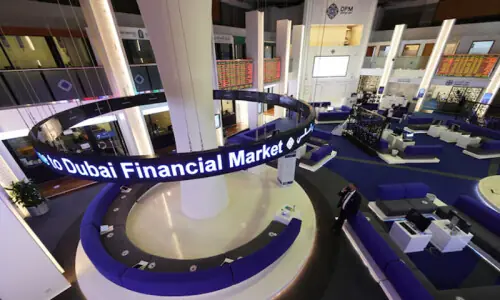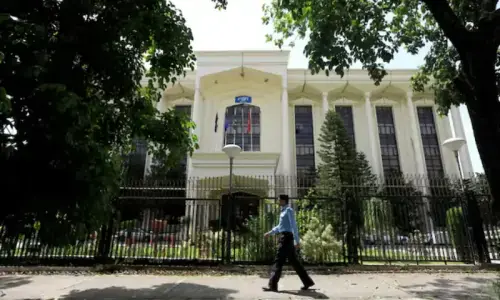TRADING in commodity futures in Pakistan is a relatively new thing. While wealthy local investors have been trading in international commodities through ‘unregulated commodity exchanges and brokers’ since the early 1990s, the government thought about regulating this sector and protecting the interests of investors only 10 years ago by establishing a commodity exchange.
But that wasn’t the only reason for the formation of the Pakistan Mercantile Exchange (PMEX).
The policymakers at that time also believed that a well-regulated, web-based, completely demutualised commodity exchange will help “create a marketplace where the producers of agricultural commodities in the country will be able to meet buyers, benefit from transparent and fair transactions and learn to make informed marketing and investment decisions to optimise their production”.
“Commodity exchanges provide transparent trading platforms to growers, particularly small landholders, and help them get rid of the inefficient and fragmented traditional markets and get the right price for their crops,” argues Syed Abdullah Bukhari, the chief executive officer of Enrichers, a commodity brokerage company.
Quoting a study conducted by the United Nations Conference on Trade and Development (UNCTAD), he says active commodity exchanges are the “quickest and best way of disseminating market information among farmers and helping them sell their products at prevalent prices as well as hedge against price fluctuations”.
However, the trading in locally produced agricultural commodities remains a dream unlikely to be realised anytime soon, he adds.
“At least two major factors have impeded the development of a futures market in cotton, rice, sugar and wheat. One, the producers or farmers are not educated enough and lack resources and access to technology to get connected with the exchange. Two, the middleman, or the intermediaries, are not interested in this, as a web-based marketplace will erode their influence on the smallholder producers and diminish their power to exploit them and manipulate the market to their advantage.”
Additionally, regulated futures trading in Pakistan is relatively new to investors, Bukhari says. “There are only a few hundred active investors who are quite happy with trading in internationally in liquid commodities — gold, silver, currencies and crude oil.”
Furthermore, since the domestic prices of these commodities are not linked with global prices, the price mismatch is also not allowing the development of trading in these products.
The commodity futures market is developing at a rather slower pace, but the number of investors is increasing steadily as more and more people are attracted to it due to transparency in trading and in the PMEX’s operations.
“The country’s futures market is gathering momentum because of zero chance of manipulation in the internationally traded commodities and currencies. I am quite optimistic about its future. The permission to trade in global currencies has also pushed daily trading volumes, which stand close to Rs5bn a day at present,” he adds.
Currency trading has only recently been allowed. It is currently permitted in yen, euro, pound sterling and the dollar, as these four are the most actively traded currencies across the world and account for more than 50pc of the total volume traded in international currency markets.
“Investors now have the opportunity to speculate against these currencies. Businessmen can hedge the dollar’s value against their imports and exports.”
He says almost 40pc of the total trading at PMEX is done in international currencies. “Gold accounts for 55pc, crude oil 40pc and silver 5pc of the remaining 60pc trading volume.”
Bukhari acknowledges that the commodity trading volumes are nothing compared to the daily turnover of the stock market.
“Commodity trading will pick up as investors come to realise its benefits for their business. Both importers and exporters will be able to hedge against losses owing to currency fluctuations. That should be a good enough incentive for them to invest in currency futures.”
Published in Dawn, Business & Finance weekly, November 30th, 2015






























